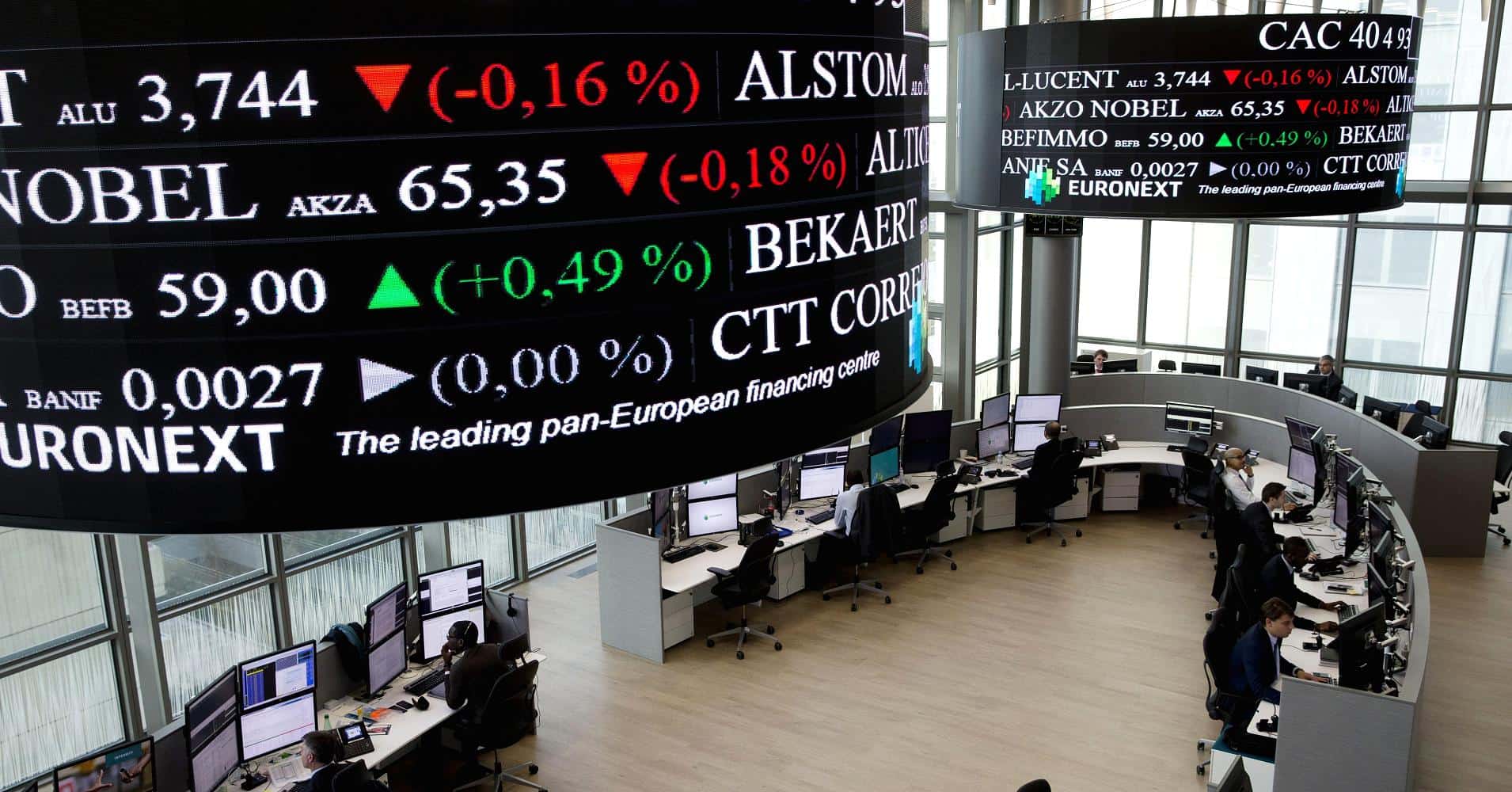
The pan-European Stoxx 600 closed provisionally down 0.75 percent with every sector and major bourse trading in negative territory.
Shares of Logitech jumped 6.5 percent, and led the gains across Europe, after announcing that there could be an increase in its gross margin targets. BPost fell 13 percent following an announcement that its full-year results will come at the low end of its guidance.
Adidas dropped 6.8 percent following its first-quarter results. The company reported better-than-expected net profit but its Reebok business saw a disappointing performance. Solvay fell 5.7 percent as its first-quarter core profit came in below expectations. The company’s performance was hit by currency fluctuations.
Euro zone inflation disappoints
On the data front, euro zone inflation unexpectedly declined in April, raising questions about the European Central Bank’s plan to scale back its stimulus program.
The European Commission said in its spring economic forecast that growth was set to remain strong this year and ease slightly into 2019, and that the economy was more exposed to external risks like volatility in the markets.
The executive arm of the European Union put forward Wednesday a proposal for its next budget (to apply from 2021 to 2027). However, this has been received with some criticism in some capitals, which are not willing to increase their contribution to the EU budget to make up for the U.K.’s exit.
US-China trade talks
On Wall Street, stocks moved lower as worries grew over whether the U.S. would be able to resolve its trade dispute with China.
Investors are monitoring a meeting between U.S. and Chinese officials on trade Thursday and Friday. Treasury Secretary Steve Mnuchin, Commerce Secretary Wilbur Ross and Trade Representative Robert Lighthizer are among the U.S. officials participating in the meeting.
The talks come after President Donald Trump proposed new tariffs on Chinese goods and Beijing responded with a set of duties that could potentially apply to U.S. products too. One of these products was soybeans. Media reports suggest that China has stopped buying soybeans from the U.S. amid the recent trade tensions.
In commodities, oil prices slipped as a climb in U.S. crude inventories and production output outweighed the prospect of new U.S. sanctions on Iran. Brent crude fell 23 cents to $72.13 while West Texas Intermediate (WTI) crude fell 17 cents to $67.76.

